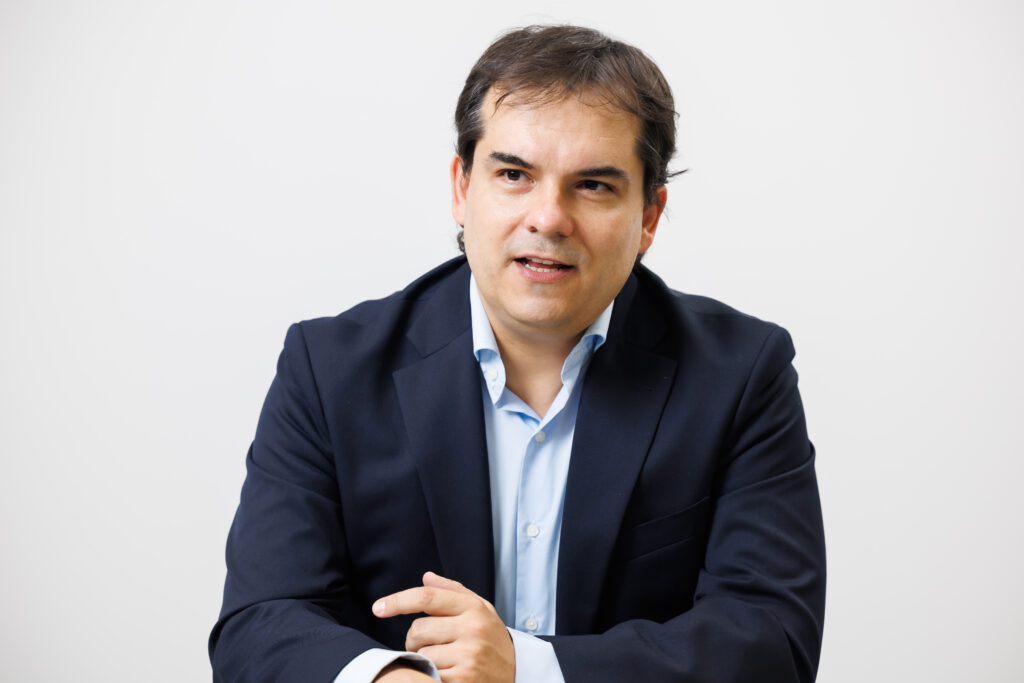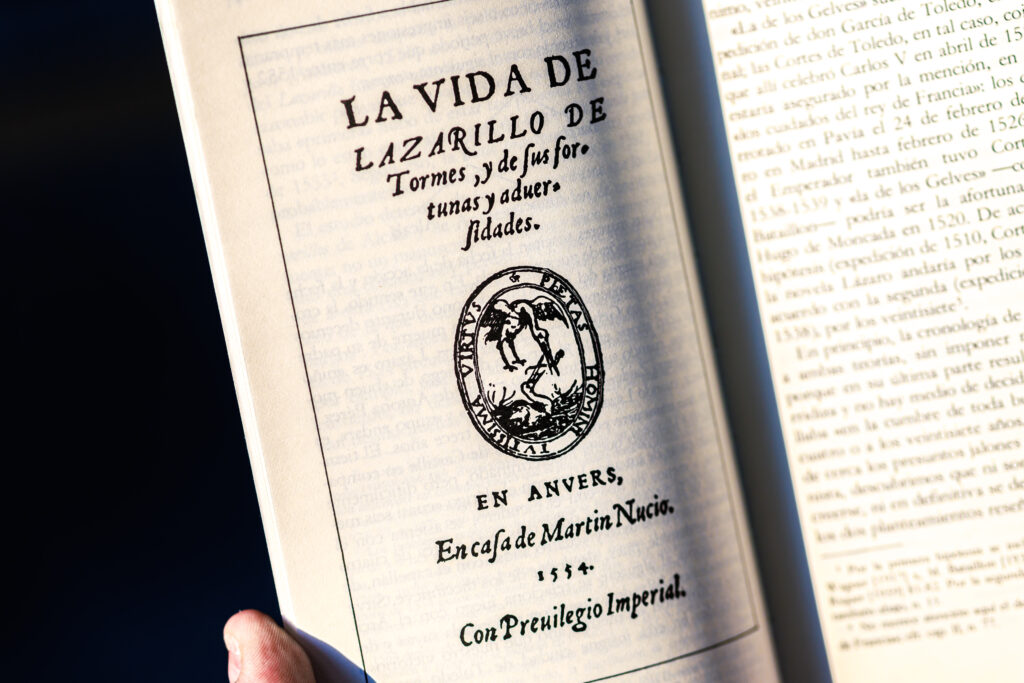
Associate Professor Antonio Doñas teaches in the Faculty of Foreign Studies and his specialization is philology. He has been researching medieval Spanish literature and written records of missionaries who worked in Japan. What will we discover by following the footsteps of people who faced danger head-on where different languages and cultures meet for the first time?
My main field of study is medieval and early modern Spanish literature and sources written in Latin. The medieval period was so fascinating to me that I majored in Classical Philology (Latin and ancient Greek) and Spanish Philology in order to study records and books dating from this time.
The common theme for my philological research is to clear up what happens when two different worlds cross. For example, in my dissertation, I dealt with the “Consolation of Philosophy,” which was written in the 6th century by Boethius, a Roman philosopher. I wrote about how this work was received by Spanish scholars during the 14th and 15th centuries.
It was acceptable for translators around this time to change content based on their intentions and cultural backgrounds. They would modify, add or delete parts from the original. I researched how the original was changed when translated into Spanish or Catalan. Translation in the Middle Ages was not only simple word-for-word translation, but also representative of an encounter where two different cultures and worldviews met.
Missionaries’ surprise at Japan during the 16-17th centuries

After moving my base to Japan, I have begun researching the records and books by missionaries who came to spread Christianity in Japan. Specifically, what I am working on now is a project to edit and translate the works by Diego Collado into English and Spanish. He came to the country as a missionary of the Dominican Order at the beginning of the 17th century and wrote about the Japanese language and Japan at that time in these works.
This kind of project requires a wide range of special knowledge. For example, speaking about languages, it is necessary to have expertise in 17th century Spanish, neo-Latin, spoken Japanese used at that time, and Portuguese, the language used as a common language by missionaries and Japanese believers. Therefore, I have teamed up with other researchers to study several works by the missionaries.
Reading the missionaries’ works, we can see that coming into close contact with Japan was a series of surprises for Europeans who, at the time, considered their own civilization to be the most advanced in the world. Everything puzzled the missionaries, from Japanese society and thought down to even the food they ate.
Traveling around the world to seek old writings and records
Most of my research activity is based on old documents and books kept in libraries around the world. I visit European archives every year for this purpose. An example of the results of this kind of research is a document that a colleague from Waseda University and I found in an archive in Madrid. It was written in Japanese in 1627 by Spanish missionaries and tells the situation when the repression of Christianity became stricter. The original text will be published shortly, together with a version in modern Japanese and English with a bilingual introduction.
On philological research in the Middle Ages, there are so many documents I have been looking for and research topics I would like to work on. Also, I have been working on a reference book about Spanish literature aiming at the intermediate level Spanish learners. I endeavor to produce more research on the topic of intercultural encounters in various forms.
The book I recommend
“Lazarillo de Tormes”
edited by Francisco Rico, Real Academia Española

A must-read book of Spanish literature in the 16th century. It makes children laugh and adults think deeply. The protagonist is poor and weak. It is a story that tells that people are neither good nor evil when they are born, and that it is their experience and relationships with others that form them.
-
Antonio Doñas
- Associate Professor
Faculty of Foreign Studies
Department of Hispanic Studies
- Associate Professor
-
Antonio Doñas holds two BAs—in Classical Philology and Hispanic Philology— two MAs—in Spanish Literature and Spanish as a Foreign Language—and a PhD in Hispanic Philology from the University of Valencia. Within academia, he has worked as a professor and researcher at the University of Valencia (Spain), the École Normale Supérieure de Lyon (France), the Warburg Institute (United Kingdom), and the University of Tokyo. He joined Sophia University in 2021.
- Department of Hispanic Studies
Interviewed: November 2022